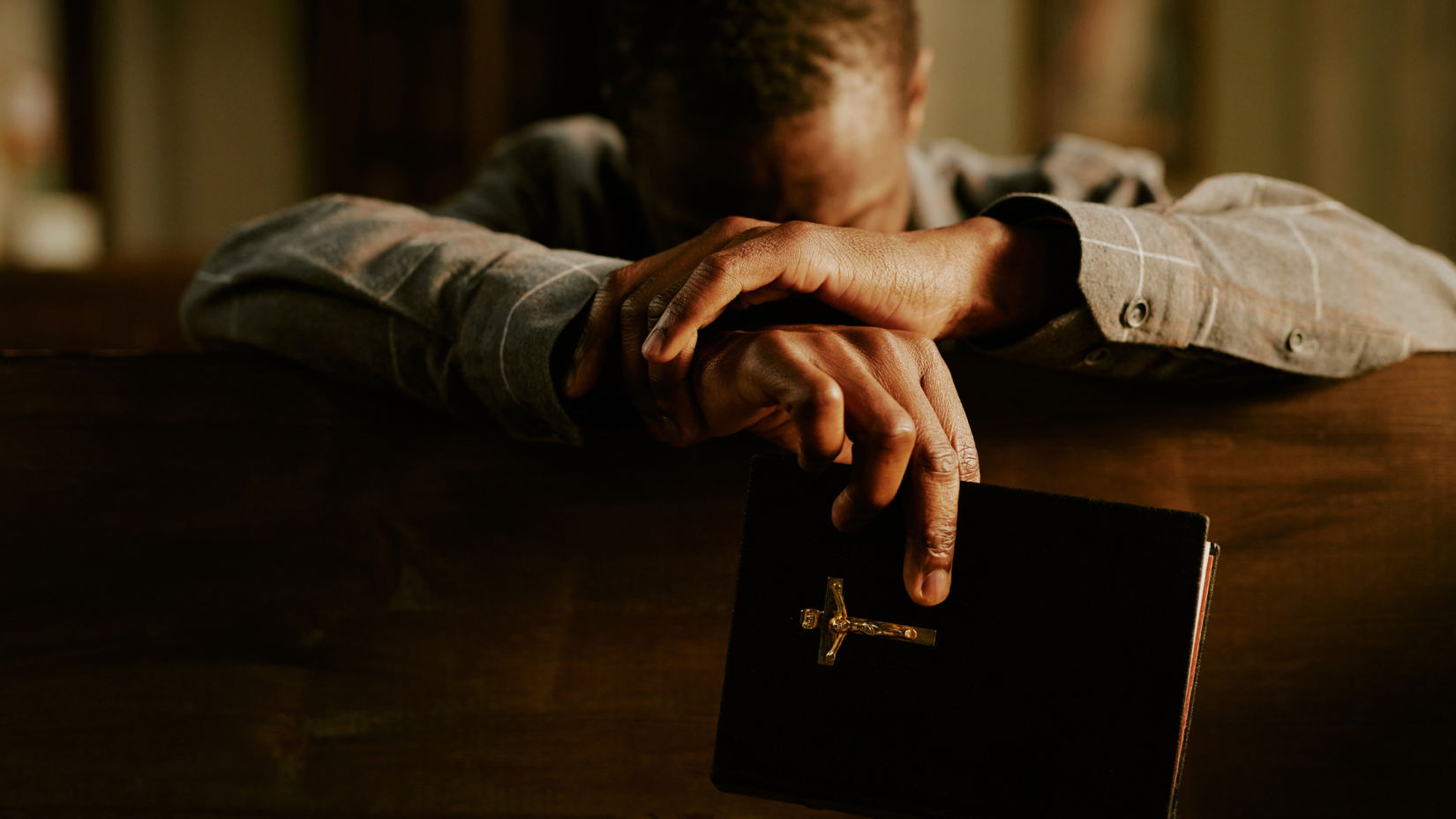
Ever wonder why God won’t show up like he did to Moses in a burning bush—an obvious way?
I sat down in the theater. Nearly empty. Plenty of room once my friend gets here. I was early and he had loads of time before things started. I waited. The trailers started. The first one plays. The second one. The third one. The movie starts. Where is he? About twenty minutes in, I stopped expecting him to come. The credits rolled. He didn’t show.
It was no big deal for me that day (he had overslept) but it can be disappointing when someone doesn’t show up for us. In some cases, it’s more than just disappointing, it’s painful— it’s crushing. A parent doesn’t show for a game, for a graduation, or a wedding. A date doesn’t show. A fiancé doesn’t show up at the altar. It’s hard to heal from moments like these. But what about when we are in the valley of the shadow of death, we’re crushed by the weight of sorrow, we’re enduring intense suffering and God doesn’t seem to show up? Is healing even possible in that case? What kind of future can we even hope for? Where is God?
This week in Exodus, I want to look at this kind of pain and ask three questions:
- 1) Why don’t we see burning bushes today?
- 2) Why a burning bush, anyway?
- 3) Why can’t you wear your shoes around God?
First, why don’t we see burning bushes today?
We could come up with lots of answers to this question, especially as it relates to our own pain and longing for God to show up for us. Many answers have been given throughout history. Maybe we’re not being curious like Moses was in our day-to-day life. After all, it was Moses’ curiosity about a burning, yet not consumed bush that led him into the presence of God. Or maybe we’re asking for God to show up, but we’re being too demanding on how he shows up— we want it our way. Maybe we’re meant to learn something through this painful experience. Maybe. But none of these answers do justice to Exodus 3 and the story of Moses, the people of Israel, and the burning bush. Why don’t they do justice to the story? Because these people had been living in slavery for 400 years! Imagine speaking to a second-generation slave in Egypt and saying, “You might need to let go of your expectations of how God will show up. He will! Believe me.” Or, “You’re meant to learn something from this slavery, friend.” Or, “Have you tried being more curious? Maybe God is speaking to you in the way that the sun glints off of the Nile.” All of these answers have some amount of wisdom to them, but they are obviously inadequate in the face of the reality of the situation: there are so many who were born into slavery, lived their whole lives enslaved, and died a slave without a word from God.
Does that mean that God doesn’t care?
No. God does care. It’s why he shows up in a burning bush. You see, ever since this story, the people of Israel adopted the burning bush as a symbol for their nation. They were in a fire in Egypt, they were burning and suffering day by day, it was agonizing, it was excruciating, yet they were not consumed. God chose to show up to Moses and this generation of Israelite slaves as a burning bush that would not burn up because he wanted to send a message: I hear you and I know. I don’t just know about your pain— I’m living it. It was a declaration to the people of Israel and all who would live lives of suffering: I hear you and I know— I’m in this with you. It was the first sign that God was not a God far-off but a God that was near. It was the first sign that God would not be content to watch from heaven but would put his skin in the game and join his people in their suffering. The burning bush is the first hint that Jesus would go into the fire himself. If you’re going through something unimaginable, God hears you and God knows. He is not far off. He is with you in your suffering.
So, why can’t I wear my shoes with God? Or, at least, why couldn’t Moses?
Because, when we encounter the God who hears and knows and is with us in our suffering, we can’t walk into his presence like we have walked around everywhere else. What’s more: we can’t leave his presence like we walked in. In this story, Moses is being called to go from God’s presence, back into his own people’s suffering to bring God’s deliverance. God not only hears and knows my suffering— he knows and hears theirs.
Christians, no matter where you are— whether you’re enjoying open fields or walking through the valley of the shadow of death— we’re called to carry one another’s burdens (Galatians 6:2). It may feel that God hasn’t shown up for you yet, but you can be God showing up for someone else who needs his comfort and rescue. Receive the invitation: take your shoes off.

Brax Carvette, Youth Minister
Brax is the youth pastor at NorthRidge Fellowship and has been at NorthRidge since 2006. He and his wife, Jessica, have a son, two daughers and they live in Elk River, Minnesota.


Contact Us
If you have questions about an article you read on our blog, reach out to Brax Carvette, Blog Editor at braxc@nrf.life or call 763.270.6425.
Share our Blog on Facebook!











